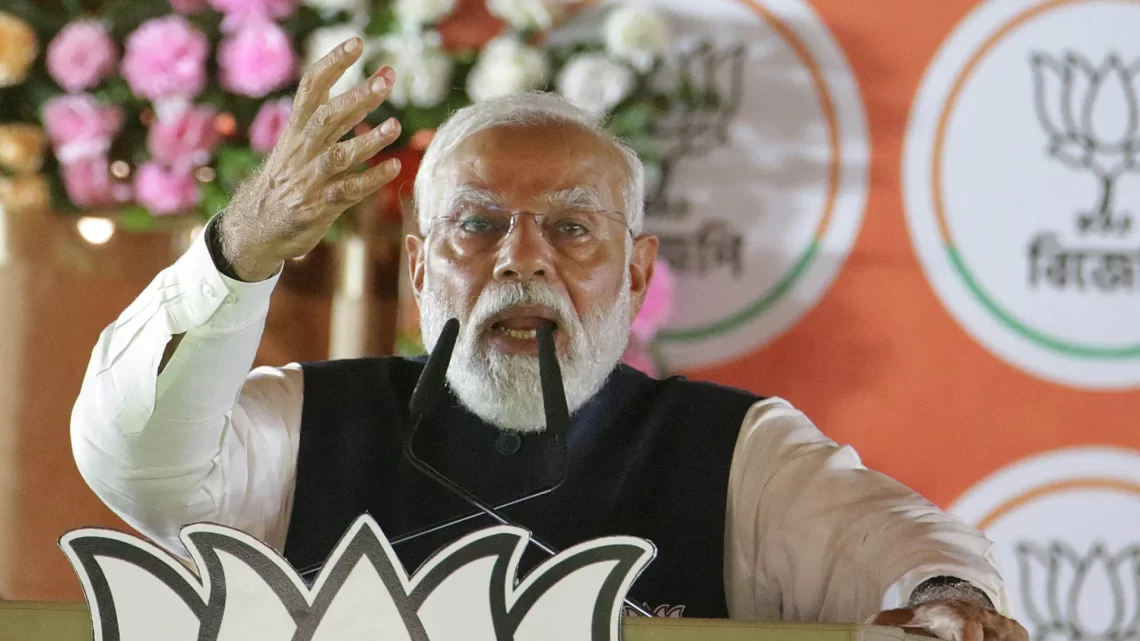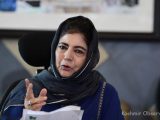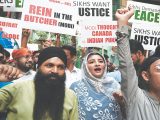
BJP’s Nervousness is Evident in Modi’s Islamophobic Address
May 8, 2024In Banswara, where Prime Minister Modi delivered his address on April 21, 2024, the political landscape is witnessing a significant upheaval. The Congress has thrown its weight behind the Bharat Adivasi Party (BAP), rallying support for their candidate and the incumbent MLA from Chorasi, Rajkumar Roat. The fervent crowds gathering in favor of Roat signal a notable shift in local sentiments.
However, the aftermath of Prime Minister Narendra Modi’s recent speech in Rajasthan continues to reverberate, particularly due to its blatantly Islamophobic undertones. Modi’s warning that a Congress-led government would favor those with more children has sparked widespread outrage. Despite weaving his narrative around a misinterpreted statement attributed to former Prime Minister Manmohan Singh, wherein Singh emphasized the need for equitable development, Modi’s speech effectively attempted to paint the Congress as a party biased towards Muslims. Such dog-whistling tactics underscore the desperation of the Bharatiya Janata Party (BJP) in the wake of the ongoing Lok Sabha elections.
Modi’s speech, delivered against the backdrop of dwindling voter turnout in states like Rajasthan, raises questions about the BJP’s confidence in securing a victory. The smaller turnout compared to previous elections could be interpreted as a cause for concern for the ruling party. Modi’s adoption of a hardline Hindutva rhetoric, coupled with explicit references to the Muslim community, suggests a strategic shift in the BJP’s electoral strategy, aimed at galvanizing its voter base.
The electoral battleground in constituencies like Banswara reflects a more competitive landscape, with the Congress throwing its support behind the Bharat Adivasi Party. Despite the BJP’s reliance on turncoat leaders, such as Mahendrajeet Singh Malviya, the groundswell of support for candidates like Rajkumar Roat cannot be ignored.
While Modi’s divisive rhetoric violates electoral norms, the Election Commission’s silence on the matter raises concerns about its impartiality. The BJP’s attempts to spin the election narrative around communal lines highlight its desperation to secure victory at any cost.
Moreover, Modi’s tenure has been marked by economic mismanagement, exemplified by policies such as demonetization and a flawed implementation of the GST. The Modi government’s inadequate response to the COVID-19 pandemic has further exacerbated economic woes, pushing households into unprecedented levels of debt. The forced sale and mortgage of gold jewellery owned by Indian women reflect the depths of economic distress under the current administration.
In light of these challenges, the Congress’s progressive election manifesto offers a contrasting vision for the future. However, the BJP’s attempts to polarize the electorate underscore the uphill battle faced by opposition parties in challenging the incumbent government’s grip on power. As the electoral contest intensifies, the fate of Indian democracy hangs in the balance, with the principles of secularism and inclusivity facing unprecedented threats.

